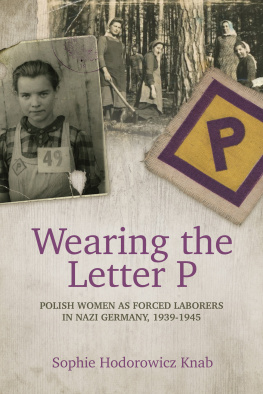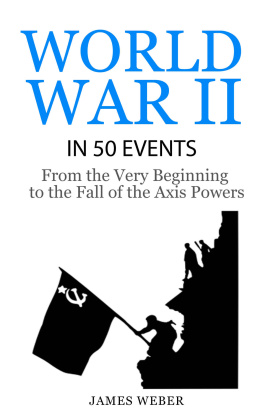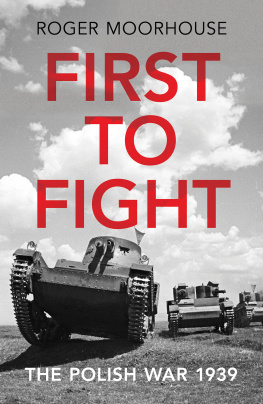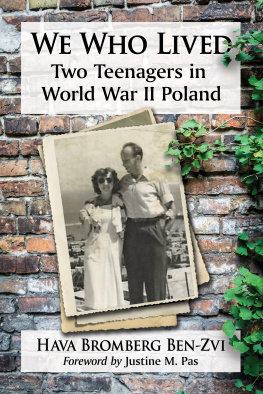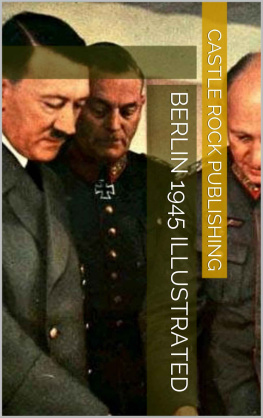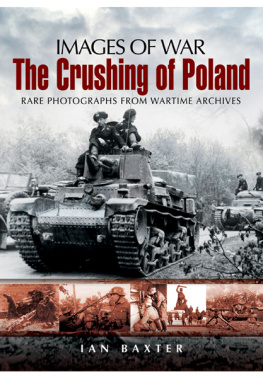"World War II Began Behind Our Garden Fence"
Narrated by Hedwig Blunk
Copyright Marion Ehresmann
Translated by Brenda Bantle
( This book is also available in Polish and German language)
All rights reserved, including the right of reproduction, storage, processing, reprinting, adaptation, transmission by radio and television, including individual texts as well as all images and photos.
marion.ehresmann @yahoo.com
ISBN 978-3-00-043387-0
Table of Contents
Preface
Invitation to a Diamond Wedding Anniversary.
We invite you cordially to celebrate this event with us at the Lake Hotel!
On Sunday, 3rd June 2011 at 3 p.m. with coffee and cake and an evening buffet
M y Aunt, Tilli, and her husband Uncle Kurt invited my mother to their diamond wedding anniversary. I am also invited because I have to drive the car to bring my mother to this isolated place. I am glad to see my aunt again after so many years. We only met on several funerals of many of their brothers and sisters. Those events had been very sad but this diamond wedding anniversary is a much better occasion.
My 84 years old mother Hedwig, had had no contact to her 80 years old younger sister Tilli since many years.
I switch on the navigation system and we start. The journey takes nearly two hours and the sun is shining. When we arrive at the Sea hotel we had no problem to find a parking place. We left the car and went to the very nice hotel. In front of the hotel we see roundabout forty invited guests under white parasols. Everybody hold a glass of sparkling wine in the hand.
There A unt Tilli stays with her husband at her side and she looks so slim. We go up to them. It is a long time ago that we had seen each other. When I was a young girl I once spent my summer holidays with Aunt Tilli and Uncle Kurt in Lbeck. Uncle Kurt looks quite the same as he looked thirty years ago. He still has his head balding and his fat belly protruding over the belt of his trousers. I remember him saying to my mother after the last funeral of one of my aunts:
Well Hedwig, you will be the next to go, ha, ha!
Aunt Tilli takes her sister Hedwig in her arms and gives her a long embrace while tears of joy are running down her face:
Oh Hedwig, you managed to come!
While watching the two sisters I have a lump in my throat. I ask myself: Why do those sisters normally not meet each other, why do they not even phone up each other? Why are they not interested in each other, especially because they together went through so many difficult and hard things in their young lives.
Quickly I go to my two cousins, Tillies sons, standing close by and try to hide my feelings as I say:
Please say something to distract me otherwise I might start crying.
They are standing in their formal suits and look around. After the guests had all been introduced and got to know each other, we were seated at the festively laid table. Toasts were made, the guests ate and there was the odd speech. My elder cousin had also prepared a speech for his parents. At the beginning he said, if he should say something wrong, then someone should tell him. The speech was mainly about his father who was football mad but also a little about the life of his mother who had fled from East Prussia. It is a really humorous speech and there is a lot of laughter.
Fled from East Prussia? I asked myself. Did she flee from East Prussia? Thats not right! I will clarify it with my cousin later on . So I take him aside and say:
If there is something wrong in your speech, then someone should tell you?
He does not look very pleased about this sort of criticism and he asks politely what he had said wrong.
Your mother does not come from East Prussia. He looks at me bewildered.
From where then?
From West Prussia, from Adamowo in Poland, Gdansk one could also say,
I replied, But not from East Prussia. They were never there at any time.
Oh, he said that is too far east ?
Yes, definitely !
My mother had told me the story of my family exactly. It begins in Gdansk and then continues in Adamowo, which was occupied Poland at that time. Then she described how our family flees from the Russians and then my mother talks about the new beginning after the war in 1945.
This story, told by my mother, should never be lost! Thats my answer.
-.-.-.-.-.-.-.-.-.-.-.-.-.-.-.-.-.-.-.-.-.-.-.-
This is the portrayal of a true story. In this tale, nothing was embellished or contrived. Experiences are described from memory, first from the perspective of a child, then from the perspective of a young adult and later an adult woman. I cannot vouch for the historical accuracy, however for the truth from my mother's point of view, I ca n .
Where do we come from ?
M y parents, Anna and Leo Blunk were born in 1898 and 1896 and came originally from Zuckau in the Kashubian region of Poland. The Kashubian region is a strip of land in the Pomeranian Lake District, forty miles from Gdansk. This is where the Kashubians lived, mostly strict Catholics. Mama played as a small child with Polish children so she spoke fluent Polish. My parents had to leave the Kashubian region around 1920/1922 because of political reasons. They moved to the Free State of Gdansk fifty miles far from the Kashubian Region. Mainly Germans, Poles and Kashubians lived there. They got along well with each other and had respect for each other, at least until 1939. The Poles wanted to help, if Gdansk should ever get into danger. My oldest sister, Gertrud was born in 1920 in Popovken, mama's second child Margaret was born in 1921. But Margaret died when she was six years old. My older brother Paul was born in July 1922 in Praust in the Free State of Gdansk.
Life in Gdansk
O ur life at this time was very rough. My father, a big, strong man with broad shoulders, was a drunk. While he was drinking, he often broke out in rages and destroyed everything even our dishes. We barely had enough plates and cups. He even found the last good dishes behind the stove where Mama had hidden them. When he got into a rage over something he threw the tomatoes, whenever we had any, out of the window. Mama picked the tomatoes up later when the coast was clear. We had no shoes for the summertime. We used to wear clogs in the wintertime. All in all we had no decent clothes.
Here in Gdansk/Upper-Kahlbude further siblings were born: Edith in 1924, Ursula in 1926 and my brother Alfons in 1929. My mother gave birth to a child each year. The years when she did not have one, she had a miscarriage. She used to say after every birth of a girl:
"Luckily not a boy - no cannon fodder"
I was born in June 1927 in Gdansk. On my children's identification card, issued on November, 9 th 1929, it says:
"Born 1927 City: Gdansk,
Country: Free State of Gdansk
So I am a native of Gdansk. I do not mean my hometown but my country. The identification papers were valid: "For travel within the territory of the Free City of Gdansk and to foreign countries."
We moved around a lot in Gdansk because my father always was arguing with the neighbours and everybody else. My sister Tilli was born in Gdansk-Kohling in March 1931. We stayed there less than a year and lived in a long house. My mothers sister lived at the end of this house. In spring and summer after the rain, we sat at the edge of the road and kneaded the mud with our hands into little figures and played with them. In case there was no mud, we played with pretty stones and pieces of broken glass. We kept them in a disused ash pan from the stove. We had no money for other toys.
If there were thunderstorms in the summer and it had stopped raining, we ran naked through the puddles. This was our chance to bathe just like the geese. We all were very afraid of thunderstorms. My mother picked us up from our beds at night. We had to put on our clothes the older ones helping the younger ones. The windows and doors were quickly barred.
Next page

